Featured guests

Ayesha Wolasmal is a former Norwegian soldier, diplomat and journalist. Politically active from an early age, and opposed to the military intervention in Afghanistan, she had a change of heart after encountering a Norwegian military convoy in Afghanistan. She joined the army and from 2007-2008 she served with the Norwegian contingent to ISAF in Afghanistan. From there she transitioned to political advisor at the Norwegian embassy in Kabul. She now works as an External Relations Officer for WHOs Global Polio Eradication Initiative. She supports local networking processes in Pakistan for community engagement in conflict and access/security compromised settings.

Aza Raskin helped build the web at Mozilla as head of user experience, was named to Inc and Forbes 30-under-30 and became the Fast Company Master of Design for his work founding Massive Health, a consumer health and big data company. The company was acquired by Jawbone, where he was VP of Innovation. Before that, he founded Songza.com (acquired by Google), and is a published dark matter physicist.
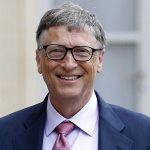
Bill Gates is a technologist, business leader, and philanthropist. He grew up in Seattle, Washington, with an amazing and supportive family who encouraged his interest in computers at an early age. He dropped out of college to start Microsoft with his childhood friend Paul Allen. He married Melinda French in 1994 and they have three children. Today, Bill and Melinda Gates co-chair the charitable foundation bearing their names and are working together to give their wealth back to society.
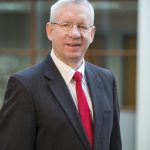
Donald F. Kettl is professor and former dean in the School of Public Policy at the University of Maryland. He is also a nonresident senior fellow at the Volcker Alliance, the Brookings Institution, and the Partnership for Public Service. Kettl is the author or editor of numerous books, including Can Governments Earn Our Trust? (2017); Little Bites of Big Data for Public Policy (2017), and more! He has received three lifetime achievement awards: the American Political Science Association’s John Gaus Award, the Warner W. Stockberger Achievement Award of the International Public Management Association for Human Resources, and the Donald C. Stone Award of the American Society for Public Administration.
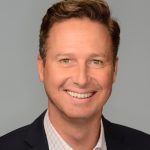
Iain Walker (MA, Sydney) is Executive Director of the newDemocracy Foundation in Australia. He holds a Master of Public Policy from the University of Sydney (2007) and a Bachelor of Business from UTS (1996). The work of the Foundation focuses on exploring and delivering systemic structural reform based on a role for randomly selected everyday people in a deliberative environment similar to a criminal jury.
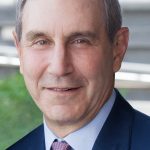
Richard Edelman is the president and CEO of Edelman, a leading communications marketing firm. The firm was named “PR Agency of the Decade” by both Advertising Age and The Holmes Report. Richard has extensive experience in marketing and reputation management, having led assignments with major corporations, NGOs and family businesses in over 25 industries around the world. He is regarded as an industry thought leader and has posted weekly to his blog since 2004. Richard is consistently mentioned as one of the top 25 foremost experts on corporate trust. He serves on the Board of Directors of the Ad Council, the Atlantic Council, the Chicago Council on Global Affairs, the Children’s Aid Society, the Gettysburg Foundation, the 9/11 Museum, the National Committee on US China Relations and the University of Chicago Medical Center.
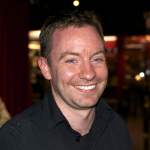
Sandy Parakilas is an entrepreneur who worked as an operations manager at Facebook in 2011 and 2012. He serves as an advisor to the Center for Humane Technology, and writes and speaks about issues related to the technology industry. His writing has appeared in the New York Times and WIRED.
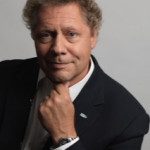
Additional Resources
- Last Week In Trump – Subscribe to receive weekly updates from BOTH sides of the bubble
- More In Common is a new effort to build communities and societies that are stronger, more resilient and more open. Through multi-country research looking at the contours of national political debate, public opinion dynamics and civil society’s response, More In Common’s objective across its different streams of work is to build closer and more inclusive societies, which are resilient to the appeal of xenophobia and authoritarian populism. Check out their Germany and France reports.
Transcript
[00:00:59] CG: This is the Global GoalsCast.
[00:01:01] EL: A podcast that explores how we can change the world.
[00:01:07] CG: This episode is about trust and the global goals.
[00:01:10] EL: We’re going to explore whether it’s possible to achieve that master plan in a time of distrust or, actually, whether the Sustainable Development Goals can be a way to rebuild trust.
[00:01:21] EL: Let’s try to define trust first of all which isn’t easy. I’ve been reading this new book by Rachel Botsman. Can I read you a quote?
[00:01:29] CG: Knock yourself out.
[00:01:30] EL: Trust is the remarkable force that pulls you over that gap between certainty and uncertainty. Trust is a confident relationship with the unknown. It is trust that has allowed the Internet to flourish and take off in ways that were unimaginable when it first started.
[00:01:45] CG: OK, I get your quote. So, it’s like getting into a stranger’s car that shows up outside my door and takes me somewhere and that’s Uber. Because Edie creating trust requires you give up control. You evaluate the risks and when the negative outcome is less likely than the positive then you get into that car.
[00:02:04] EL: By the way what is your Uber rating these days Claudia.
[00:02:07] CG: I haven’t managed over 4.5 yet.
[00:02:09] EL: Since I’m full of the quotations today. Here’s another one from Rachel’s book. It’s from a guy called Morten Deutsch talking about that leap of faith. Trust involves the delicate juxtaposition of people’s loftiest hopes and aspirations with their deepest worries and darkest fears.
[00:02:28] CG: So how can a massive plan like the sustainable develop goals that is totally dependable on partnerships and coordination can possibly succeed if there is no trust in the system. If citizens don’t trust their governments. If you don’t know what you are reading is real or fake and therefore there is a lack of trust in one another.
[00:02:48] EL: I spoke to Don Kettl about this. He is professor of public policy at the University of Maryland and he’s written a book. The link is on our website and it’s called
[00:02:56] DK: “Can governments earn our trust”
[00:02:57] CG: Thanks Don.
[00:02:58] CG: Gracias, Don.
[00:03:01] DK: “Trust really has to do with our confidence that as we engage in a relationship with our government in particular but with other institutions and other individuals as well that we have a kind of confidence in the way in which they’re going to be able to respond to us, that there’ll be a kind of fidelity to set the kind of values that we care about that in the process of this relationship bad things are not going to happen and that we can ensure that the kind of relationship that we want will happen as a result of this. Distrust is what happens when we create a relationship the people involved in the relationship on the other end are unfaithful to values that we hold, and bad things happen as a result.”
[00:03:41] CG: So, Edie as you know I happen to live with an expert on trust.
[00:03:46] EL: That is so useful today.
[00:03:47] CG: Very useful for this episode. So, Richard Edelman, my husband, runs the largest and longest running study on trust in the world.
[00:03:56] RE: “The big issue for 2018 in trust is the collapse of trust in media. 75% of our respondents said that they’re afraid of the effect of fake news. It makes them unable to judge the performance of a government leader or actually of a brand. They’re actually in a world now of distrust in information sources. It’s so profound that they actually don’t trust a friend, family or a person like yourself anymore, preferring instead an expert in academia or a technical expert from a company or even a CEO because they have credentials and have trust. And the consequence of this is substantial, because ultimately you want people to have enough facts to make good decisions and at the moment they can’t distinguish between fact and fiction and when that happens they start to rely on emotions, they’re susceptible to fears. What is particularly alarming is that more than half of the people have signed off altogether from mainstream media. They find it elitist, politicized and in fact doesn’t cover people like them.
[00:05:14] EL: So, with the landscape of trust looking less than stable. What does that mean to achieving the goals? Don Kettl again.
[00:05:20] DK: “We have the problem of distrust that is growing. We have a set of sustainable development goals that require a commitment to those goals and collaboration in achieving it. It’s hard to get collaboration if people don’t trust the relationships with each other, and we run the risk of getting ourselves in this awful situation where the thing that we have agreed to do is the kind of thing that we can’t make happen, because it founders on barriers and boulders and roofs of distrust that exist, in so many places, which may in fact make things worse.”
[00:05:54] EL: Claudia, I know you were just in San Francisco, my home town, talking to Sandy Parakilas and Aza Raskin from the Center for Humane Technology about how social media is either creating or magnifying distrust. Talk me through what they said.
[00:06:08] CG: That news feed that you see when you open up your Facebook or your Twitter that makes you think that you’re in control of what you’re reading. But is it?
[00:06:17] SP: “So the way that that news feeds work, and this is not just true of Facebook, it’s true of Twitter and other feed based social networks is they’re trying to find the thing that you’re going to like the most and they put that at the top. So, what that means is that they are trying to get signal from you whether it’s you know whether you like something, whether you share it…whether you take some action”
[00:06:37] CG: Sandy expands on the issues that are at the heart of this story. Truth and trust.
[00:06:43] SP: Because these algorithms are pointing people to the content they are most likely to engage in or engage with. They are much more likely to as you said to boost up content that will make you angry because that actually turns out to be the thing that’s much more likely to get you to continue to use the service rather than something that is just sort of moderately interesting and you know and banal. “
[00:07:07] CG: And what this means is that technology might be helping to erode trust. We see the splintering and re-splintering of opinion. Rather than making the world more open and connected rather than leveling the playing field, we’re questioning here if technology is exploiting divisiveness in society. Here’s what Sandy’s colleague, Aza Raskin, and a voice you might recognize have to say about this.
[00:07:36] AR: “What started out as a race for our attention has turned into these direct manipulation channels where you can target and persuade a society at scale in ways that have never happened before. And the U.S. we start to see that the left and the right see completely different movies about what’s going on. We can’t agree on the basic facts”
[00:08:00] BO: “One of the biggest challenges we have to our democracy is the degree to which we don’t share a common baseline of facts. What the Russians exploited, but was already here, is we are operating in completely different information universes. If you watch Fox News, you are living on a different planet than you are if you listen to NPR”
[00:08:34] EL: So, I love how we snuck Barrack Obama in there. Fake news, whatever you want to call it, is not new. President Lincoln was plagued by fake news. Antony and Cleopatra were ruined by rumors. And it comes from fear.
[00:08:47] Unknown: What we have is a problem that on the one side is internal that has been gone on as long as there are people but on the other hand we have because of the rise of social media, because of the rise of the Internet and because of the nature of the relationships that it makes possible, we’ve got ourselves in a situation or words that are much easier to create distrust that much more quickly.
[00:09:10] AR: “The first amendment was from a time when speech was expensive, and hearing was cheap right like it was hard to get your message out. But there weren’t so many things around, you could just listen to whatever you wanted. And now it’s flipped where speech is so cheap that anyone can speak whether that’s Russia or like a blogger mom from Utah. But because there’s so much content out it’s whoever controls where you’re getting information, where you can hear from that has the true power.
[00:09:40] CG: Edie let’s assume this thesis is right. That these rumors, sometimes spread as divisive digital content, designed to appeal to our emotional side are not just problematic in elections in high-income countries. It is problematic everywhere. It’s might be actually stopping parents protecting their children. Across the world.
[00:10:01] EL: What we do in this podcast is take the really big ideas and focus them down to the specific. So now we are going to look at how distrust is dragging out the eradication of one of the most crippling diseases on the planet, and that’s polio.
[00:10:16] CG: There are people in the health community, Edie, that think that polio is not a major focus of the SDGs and it is not even listed as a target. But before we get into the polio story, let’s take a moment with Bill Gates whom you and I spoke to a couple of weeks ago in Davos. Polio eradication has been one of the Bill and Melinda Gates Foundation priorities and they have helped India to eradicate these nearly seven years ago.
[00:10:45] BG: “We’re on the verge of eradicating Polio, we had less than sixty cases last year and we still have to get rid of it Pakistan and Afghanistan and then it’ll become the second disease to be eradicated after smallpox. You know, it’s great science, it’s great impact, there’s a lot of heroes out in the field”
[00:11:03] EL: Ayesha Wolsamal is one of the heroes Bill Gates referred to. She’s a former Norwegian soldier, diplomat and journalist. Her parents are from Afghanistan, but she was born and grew up in Norway. She is an External Relations Officer for WHOs Global Polio Eradication Initiative. By the way she has very noisy jewelry, and my producer was so cross with me that I didn’t ask her to take off her bracelets. She told me that in Pakistan, like the US, like the UK, vaccines are not trusted. She spent the last few weeks in Karachi joining the team of local health workers visiting homes where parents were refusing to give vaccinations to their children. And as you’re going to hear, convincing mothers of the benefits of the vaccine is far from easy.
[00:11:46] AW: “I just don’t want to give it to my child, you know, and that’s the starting point. Then she goes through the religious aspect and we try to answer that. Then she goes through the demand issue that the streets are filthy, the government is doing nothing, why all this focus on Polio. Then on the western involvement, that this is something that is going to sterilize the Muslim population. And then when you try to answer that, she goes over to, but I just really don’t trust what the vaccine contains, and I’ve heard that children get sick”
[00:12:21] EL: I also spoke to Seth Berkley. He’s the CEO of GAVI the Global Vaccine Alliance. Claudia, you know him, right?
[00:12:28] CG: Yes, I have worked with him and I have worked with GAVI and I give them a lot of credit because what they have managed to do is work with all stakeholders of society to make sure that together we get vaccinations all over the world. Edie, before GAVI, in the 80s or something, it was like UNICEF managed to get huge world coverage of vaccines getting more to 80 percent of the world population vaccinated but then we reached a plateau. And thanks to GAVI, not only we managed to get out of the plateau, get to more than 90 or 92 percent of the world’s children population been vaccinated but also get more vaccines into the package that kids get.
[00:13:07] SB: “Traditionally there was huge trust in the medical system and doctors and public health workers and then if there were problems you had community leaders who would also reinforce that trust. But if you use the particular example of Pakistan, Polio eradication has been going on for more than 20 years, so in many communities they have seen month after month people come and they bring Polio drops but not much else, so one questions over time is, we don’t see any Polio so why is this being done, and that raises questions. And second as you know there’s been some unfortunate issues as you probably know the CIA used when they were trying to track Bin Laden used some misinformation and said they were out doing surveys for vaccinations, and that type of thing can be used as propaganda and create mistrust”
[00:13:58] AW: “Even in the most deprived areas everybody has, or most people have access to internet. WhatsApp, it’s a powerful medium and they’re receiving all these short videos and they spread like fire in the bush”
[00:14:13] EL: Distrust in vaccines is a global story. I moved to the U.K. 20 years ago just before a big vaccine, fake news story hit the headlines.
[00:14:22] AR: “20 years ago Andrew Wakefield published a paper that said the MMR vaccine was associated with Autism, which turned out to be data that was falsified it turned out not to be true, but it shattered public trust in vaccines and we saw vaccinations drop. 40% of French people disagreed with the statement that vaccines are safe, in Russia 16% felt that vaccines are important in Italy 14%, so we are seeing in the West a huge effect of trust. In the developing world we also see this trust effect, it’s hard to be as explicit but in Nigeria there’s very low coverage rates in the north of Nigeria for example and efforts have been done to make the supply chain work that provides vaccines. And what’s interesting that even when the vaccines are there people don’t come to get them, and I suspect that this is because of trust as well, trust in the system, trust in whether the government is able to deliver, whether people are there when they come, so this becomes a very important issue.”
[00:15:28] AW: “When you see a mother and she’s telling you that I will not allow you to give drops to my kids because it’s going to make him sick, it’s actually going to paralyze him. Of course, you know it’s not right, but you have to feel her fear. I think a lot of it is listening, a lot of it is in just giving them the time they need. And, of course, trying to engage them in some kind of discussion, explaining the positive aspects of the vaccine. A lot of these women love talking about clothes, and like they’re really good with embroidery, and in between their household chores, they’re like sewing stuff, and I sit, and I talk to them about the work they do at home. To me it’s like reconnecting with the basics of what it means to be a human.”
[00:16:10] EL: We are all human. I should point out that Ayesha emphasized how she was accompanying women health workers from Karachi who are out in their own communities every day. This is not top-down health policy, its people working with their neighbors in their communities. She told me a story about visiting a Grandfather.
[00:16:31] AW: “At that point we didn’t know much about this household because we had not succeeded in engaging them in any kind of communication or dialogue. And go inside, and walk inside the stairs, and get up and it’s like one older man who is kind of like the elder in the family and it’s like sixteen women and babies everywhere. And you know I immediately smiled and said wow you really know how to keep quiet. And they’re all like cracked up. So, I just like sit right down and I’m like why, my dear, my dear uncle my grandfather, my father, I call him numerous things just to create a relation and then just tell me, you have so many beautiful grandchildren, why are you not, vaccinating them. And he starts laughing. He’s like they tell me that they will get like this, they tell me we keep hearing rumors that the vaccine is not good, and I asked them, have you tried to seek information. And they were like no, no who has time for that. And then of course, the male family members are the only one who can actually get the information because these women they almost never leave their homes. So, then I sat down with them and I told them, ask me questions. If I don’t have the answers you want to hear I will try my best to bring someone else. This man, who just initially seemed hostile to me was just a concerned Grandfather.
[00:18:05] EL: Before we hear you Ayesha, remember what an intangible thing trust is…
[00:18:11] AW: “Imagine inside a household… when you’ve spent like an hour twenty minutes like talking talking talking trying to you know address all their issues and suddenly, you know the grandfather says bring all the children. And you just get to vaccinate these children. It is an unbelievable feeling, and you feel like what you said has a direct impact on them, that they believe you…”
[00:18:38] EL: That’s the moment that trust is built.
[00:18:48] CG: Truth, Trust and technology are set to become even more entangled. As the tools become more sophisticated, it is going to be harder to know what is true or who to trust. So, Edie you have an iPhone x or an iPhone 10 or whatever they’re called, right?
[00:19:04] CG: Exactly. That’s why my pictures on Instagram are so good.
[00:19:08] CG: Well you show off but I not sure you’re going to like what Aza told me.
[00:19:12] AR: Because you already know that Facebook knows more about you, can predict what you click on, what you like better than your spouse does. Last year the iPhone 10 came out and it has the ability to track your face in 3D. So, any app developer can watch your face in real time and what data would Netflix, would Facebook, would any advertiser love instead of just knowing how long you scrolled and what you’ve clicked on, they’d love to know what emotions you are feeling when they sign…
[00:19:43] CG: What face do you make…
[00:03:44] AR: Exactly. What are your microexpressions, what’s going on behind your eyes. And when you can correlate this at societal scale and be like ‘ah, for these kinds of people they feel a little sad when they see this kind of thing. Oh, right in this video, this is when people lose attention, let’s just tweak it little bit’ and you combine it with all the data that Facebook already knows about you and the ability to generate any video of anyone. But let’s say they want to make you the perfect political ad. So, I find on Facebook some videos of your mom and I extract her voice and I generate a new voice that sounds a little bit like your mom’s so just that you trust it. And I take pictures of your dad and some of your best friends and I combine them to make a political ad with the voice of your mother and you’re just like you’re going to have to believe it because we’re humans. It’s how we operate.
[00:20:33]CG: Just imagine if companies like Facebook use all their amazing brain power and algorithms focusing on the goals and making the world a better place in making sure that they bust bubbles so that people can have a comprehensive understanding of any issue, such as migration, as opposed to being trapped in their bubble.
[00:20:52] EL: We are just going to require them to change their incentive structure because it’s currently driven by user growth, by monetization enough to maximize shareholder value.
[00:21:00] SP: these companies are in the business of capturing as much of your attention as possible and the way they do that is they use a number of brain hacks to find psychological vulnerabilities in people to get you to keep scrolling, keep looking because they make more money. the more that you look at their content. “If people are using these platforms to manipulate an electorate at scale, if they’re using it to spread a message of genocide, clearly if you are the technology platform that’s being used for that purpose, and you have built a platform that has enabled that, you should have some liability for this absolute worst-case scenario.”
[00:21:49]CG: This not only affects technology companies but also the entire area of trust in the system including the non-for profit organizations that I mentioned to you.
[00:21:59] EL: Tell me what the Trust Barometer says about trust in NGOs at the moment.
[00:22:03]CG: So, for the second year in a row, NGOs now have lower trust than CEOs of companies and one of the main reasons is accountability and transparency. And that happens both ways, Edie. Between donor countries and implementer countries there is an issue of distrust for the countries they are giving the money to be implemented somewhere else saying like ‘are you implementing it properly? Are your health workers in place? Are you reporting it?’ Public corruption has played a role in eroding that trust. The other area of distrust between NGOs are the public. Just to know that for every dollar that I’m giving, what is happening to the dollar that I’m using? Are you really implementing that issue? You know like sexual behavior on the ground has been affecting trust overall and that has had an impact.
[00:22:53] EL: We heard from Ayesha that building trust is one to one, individual health workers going door to door, but this isn’t always possible. Sometimes governments need to build trust for their citizens and Claudia, just remind me where governments are in trustworthiness in their Edelman Barometer…
[00:23:11]CG: The lowest on all categories. If there is one institution that has no trust whatsoever in the world, or the lowest, is government. A government official is by far less trusted than a CEO. The only or their lowest category after the governments are journalists. That used to be, ten years ago really like, the force that was going to come and defend citizens. Now governments and journalists are the least trusted institutions in the world.
[00:23:38] EL: I am going to try not to take that personally as a journalist, but I want to talk about the governments. So, one of our partners, Apolitical, put me in touch with Ian Walker in Australia. He runs something called the New Democracy Foundation. He puts together these things called citizen juries. They are like a jury for a criminal investigation, but they actually deal with the toughest questions that sometimes tangle governments up like, ‘what do we do with the nuclear waste that we generate? Or how shall we live within our means?
[00:24:09] IW: “We look at what holds the world back, it’s that we just can’t reach a trusted decision, any decision you come up with people can pretty easily erode in a 20 second tweet. So, stop telling politicians to ignore public opinion, start coming up with something better than public opinion, and its public judgement”.
[00:24:24] EL: So what Ian highlighted was the big issues don’t always have to divide along party lines. When you get a group people off social media and into a room for a good length of time and we’re talking like months like three to six months looking at one of these issues, they can tackle really contentious issues in a very sophisticated way. So, the government had a project looking at whether they could put nuclear waste in one of the parts of Australia. They got a really diverse group of people together.
[00:24:52] IW: The plumbers, the childcare worker, the teacher, the accountant, the dentists and so forth.
[00:24:57] EL: To listen to experts from both sides of the debate. They took time, months, to listen, discuss and write.
[00:25:04]IW: “What I do see is a more nuanced community feedback with a unanimous groups of people standing behind it that actually offers and informed view to the parliament and that’s what we see that citizens are capable of and all I ever point to is they came back with nuance they came back with evidence and a rationale they got beyond the simple good guys and bad guys yes and not to say, we don’t like this aspect, we are open to this aspect, and, we think that’s going to be constructive in a discussion like this.
[00:25:37]CG: Edie, what do you think about this as a fact? I mean do you remember when bloggers started you know like that’s probably like 10 years ago if not more when social media started?
[00:25:47] EL: I was too young.
[00:25:48]CG: You are a journalist and probably your training was bring the pros, bring the cons and then do an analysis of a situation, correct?
[00:25:56] EL: It’s important to figure out where you’re getting your facts, right. So, it’s also important to look at a diversity of sources. So, for example I get an email once a week and its news about Trump from both the left and the right and it completely helps to change my perspective of how the U.S. political scene is being reported. We’re going to have a link to that in fact in our website.
[00:26:22] EL: We always give you some actions to take. And can I just be totally honest, this was not an easy episode to take action. This is not as easy as taking your reusable coffee cup to the coffee shop. So, here’s what we came up with first of all, can you distinguish real from fake news? If you go to our website you can take a quiz. Okay, Claudia here’s the quiz. Every child must be vaccinated in order to eradicate polio. True or false?
[00:26:48]CG: True.
[00:26:49] EL: You got it right. Okay so for more check out www.globalgoalscast.org. So, I’ll add one that comes from the New Democracy Foundation, Ian Walker. He said when you are starting a conversation about something with an open-ended question, encourage people to ask for information rather than just rushing to the top of mind or first thing they have to say. That’s what Ian does in his citizen juries. These are the other thing we always do in our episodes is give you three facts to take away. Claudia, what are your facts?
[00:27:21]CG: 50 percent of the world have disengaged from news and 50 percent consume news less than weekly. Nearly 7 in 10 people worry about fake news being used as a weapon against them. Another interesting fact comes from one of our guests today.
[00:27:39]AR: You think you’re anonymous but you’re not. It only takes 10 likes on Facebook to know your psychology, in the big five tests, better than a co-worker and it takes just three hundred to know you better than your spouse does.
[00:27:]CG: Edie, in this episode we decided to take Trust and explore whether the Sustainable Development Goals can actually be achievable if you were live in a world of distrust. And we conclude that it’s impossible. If we continue collapsing our trust in each other, in our institutions, in our governments. The other part that we are very convinced about is that the global goals or Sustainable Development Goals can absolutely be considered as a way to restore trust in the world. The Sustainable Development Goals are a master plan, out there in the universe, that can be used as a framework of action that are not political, that are just bipartisan, created by everyone, that took five years to put together this master plan and can become the northern light, the framework of action, the guiding principle.
[00:28:56] EL: From my perspective, when I spoke to Ayesha, she was really moved when the grandfather decided to vaccinate the kids in his house. She was elated, you can just hear it. That empathy, that listening, that emotional investment that it took. I found it so difficult to pin down a description. Trust is so unquantifiable. Rachel Botsman writes that ‘trust is a bridge to the unknown’. There is an element of fatal mystery, like a soap bubble.
[00:29:25]CG: Coming soon is the first episode in our three-part mini-series about polar explorers, activist and father and son, Robert and Barney Swan. Who recently walked to the South Pole to highlight climate change and to show how renewable energy can really make a difference. We will follow their story through audio diaries they recorded on the expedition and, as you would expect from the Global GoalsCast, we will have plenty of interesting insight into some of the issues around their mission. Follow us from water day to Earth Day, finalizing in ocean day.
[00:30:02] EL: If you want to make sure that you don’t miss that or any of our episodes, subscribe to us at Apple Podcasts, or where ever you get your podcast. And, please, follow us on Twitter, Instagram and Facebook @globalgoalscast for the latest news and developments.
[00:30:18]CG: And that was Edie Lush and I am Claudia Romo Edelman. Thank you so much for being with us.
[00:30:23]CG: This is the Global Goals Cast.
Thanks to HARMAN the official sound of Global GoalsCast. Music in this episode was by Andrew Phillips, Angelica Garcia, Simon James, and Ellis.
